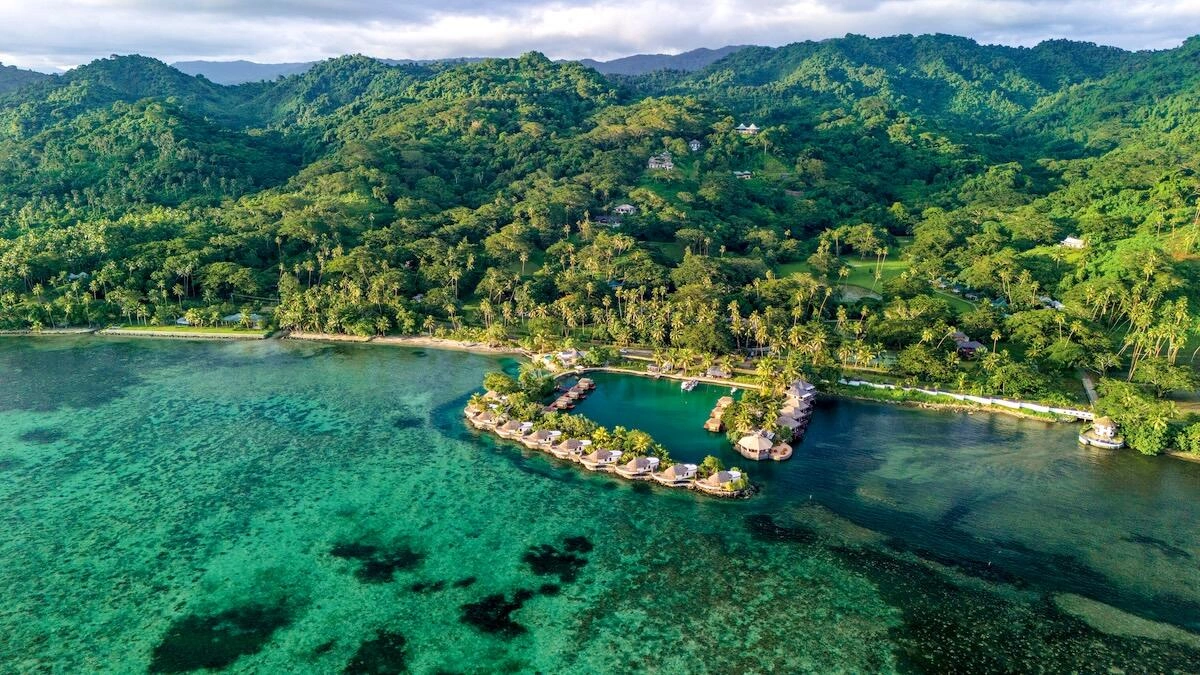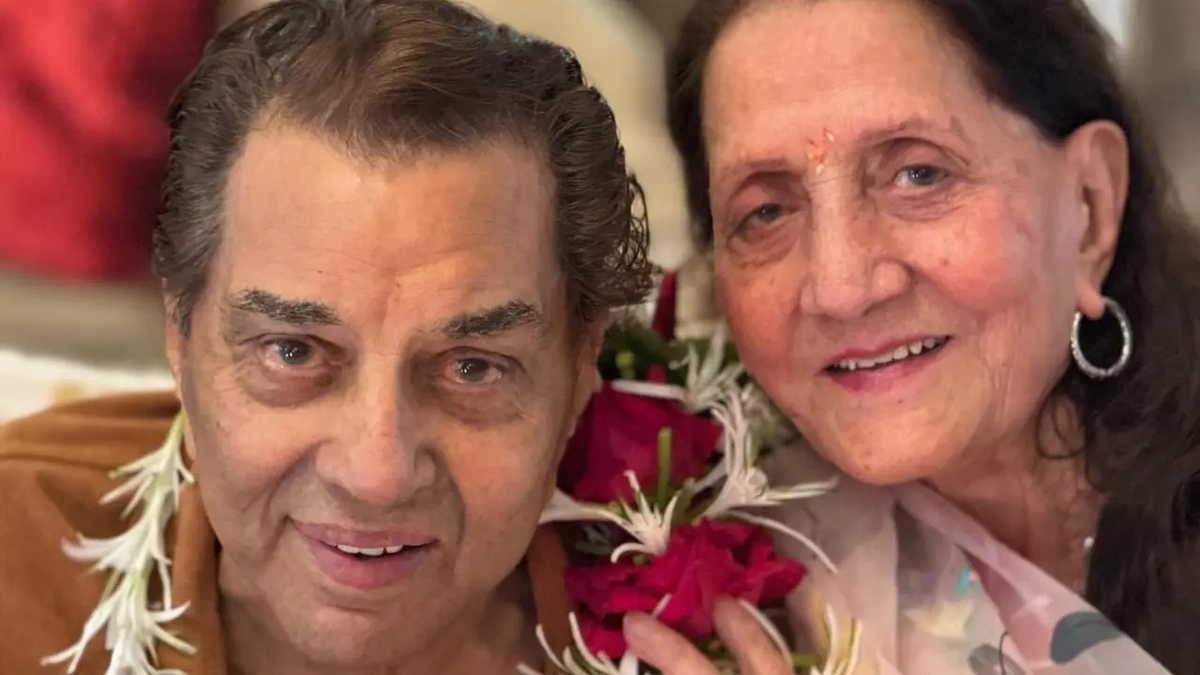Beyond the ‘Bula’ | The Real Story of Fiji That No Travel Brochure Tells You
Let’s be honest. When you hear the word “ Fiji ,” your brain probably conjures up a very specific screensaver. Overwater bungalows, impossibly turquoise water, palm trees swaying in a gentle breeze, and someone handing you a coconut with a tiny umbrella in it. And you’re not wrong. That part of Fiji absolutely exists.
But here’s the thing. Judging Fiji by its resorts is like judging a masterpiece by its frame. It’s pretty, sure, but you’re missing the entire story. The real Fiji is a fascinating, complex, and deeply moving place that has more to teach us about life, resilience, and community than a thousand wellness retreats.
I initially thought of it as just another fly-and-flop destination. A place to unplug and get a tan. But the more I looked into it, the more I realized I was getting it all wrong. So, grab a coffee (or chai), and let’s talk about the Fiji you don’t see on Instagram the one that will actually change the way you see the world.
Decoding ‘Fiji Time’ | It’s Not About Being Late, It’s About Being Present
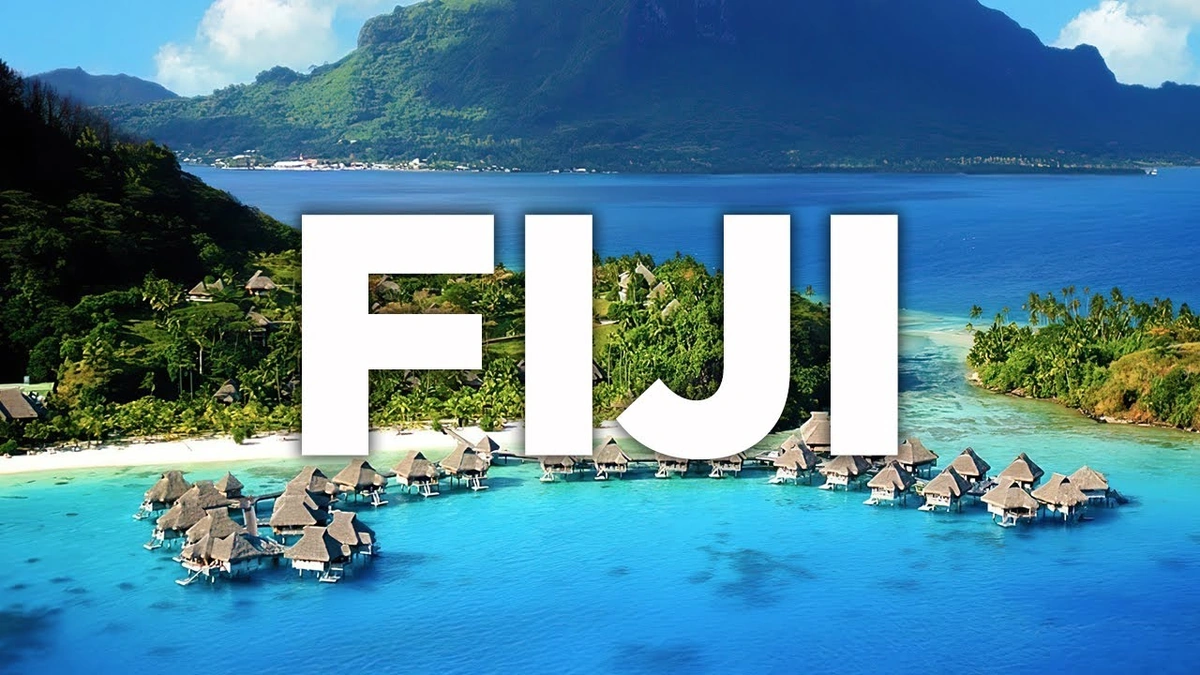
You’ll hear about “Fiji Time” within an hour of landing. For most tourists, it becomes a half-joking, half-frustrated term for when the tour bus is 20 minutes late or the cocktails take a little longer to arrive. It’s easy to dismiss it as simple “island slowness.”
But that’s a massive misinterpretation.
What’s fascinating to me is that ‘Fiji Time’ isn’t about a disregard for schedules; it’s about a completely different set of priorities. In the West, we worship the clock. We schedule our lives in 15-minute increments, optimizing for efficiency. In traditional Fiji culture , the most valuable resource isn’t time it’s relationships. It’s community. If your neighbour stops you on the way to the market, the culturally correct thing to do isn’t to glance at your watch and rush off; it’s to stop, connect, and genuinely ask about their family. The schedule can wait. The person in front of you cannot.
This philosophy is wrapped up in the famous Fijian greeting: “Bula!” It’s plastered everywhere, and it’s easy to think it just means “hello.” But the literal translation is “life.” When someone says “Bula” to you, they are genuinely wishing you life, health, and happiness. It’s an offering. And when you understand that, you realize the famous Bula spirit isn’t a performance for tourists. It’s the very fabric of their society. It’s a powerful lesson in a world obsessed with productivity over people.
The Two Fijis | A Cultural Cocktail You Won’t Find Anywhere Else
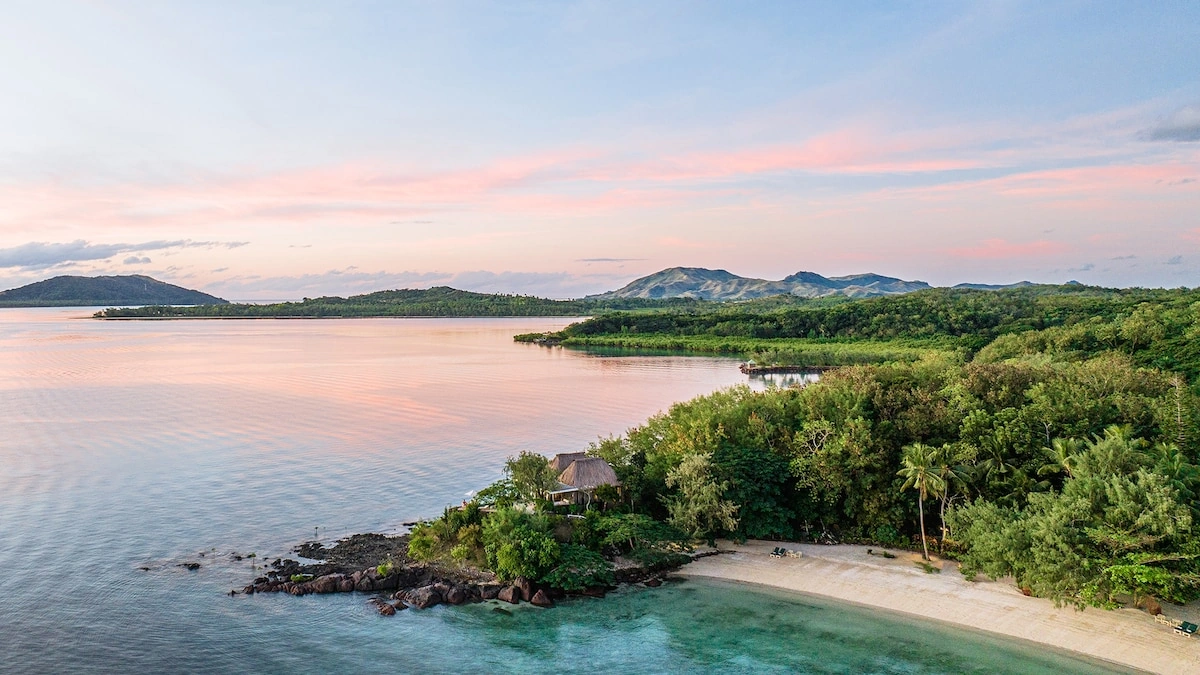
Here’s a piece of the puzzle most travel guides conveniently gloss over. Fiji isn’t one homogenous culture; it’s primarily two, living side-by-side in a unique, and sometimes complicated, harmony. You have the Indigenous Fijians (the i-Taukei) and the Indo-Fijian community.
So, how did a huge population of Indian descent end up on a tiny island group in the middle of the Pacific? The story starts with the British Empire and sugarcane. In the late 19th and early 20th centuries, the British brought over tens of thousands of indentured labourers from India to work the cane fields. (A similar story is told in places like Mauritius and Trinidad). When their contracts ended, many stayed, building lives and communities from scratch.
Today, nearly 40% of Fiji’s population is of Indian descent. And this has created a cultural fusion that is utterly unique. You’ll drive past a traditional i-Taukei village with a Christian church, and a few kilometres down the road, you’ll see a vibrant Hindu temple. The markets are a feast for the senses, with stalls selling cassava and taro root next to stalls piled high with cumin, turmeric, and fresh bundles of coriander. The best food in Fiji is often found in the small, family-run curry houses serving up delicious rotis and spicy gravies that taste of a story that crossed oceans. This is something even the most well-thought-out political strategy couldn’t have planned.
It hasn’t always been a seamless blend, let’s be clear. The country’s political history has seen significant tensions between the two communities. But for the average visitor, what you experience is a beautiful, layered society. To truly visit Fiji is to appreciate both of these rich cultural tapestries.
More Than a Paradise | Fiji’s Powerful Voice on a Sinking Planet

This is the part of the story that matters most. While we see Fiji as a place to escape the world’s problems, Fiji is on the front lines of the world’s biggest problem: climate change.
For an island nation, climate change isn’t a political debate or a future problem. It’s an existential threat. It’s rising sea levels literally swallowing entire villages, forcing communities to relocate to higher ground. It’s more frequent and ferocious cyclones, like 2016’s Cyclone Winston, which was the strongest storm ever recorded in the Southern Hemisphere and devastated huge parts of the country. According to theWorld Bank, Fiji is extremely vulnerable to the impacts of a changing climate.
But Fiji is not a passive victim. What’s truly inspiring is how this small nation has become a giant on the world stage, advocating for climate action. Fijian leaders have taken a central role in international climate negotiations, like the UN’s COP summits. They speak with a moral authority that richer, more powerful nations lack, telling the world, “You debate percentages and deadlines; we are fighting for our very survival.”
Knowing this completely changes your perspective. You’re not just vacationing on a pretty island; you’re visiting a nation that is in a courageous fight for its future, and in doing so, is fighting for all of us. This adds a profound sense of gravity and importance to your Fiji travel from India or anywhere else in the world.
So, You’re Going? How to Experience the ‘Real’ Fiji
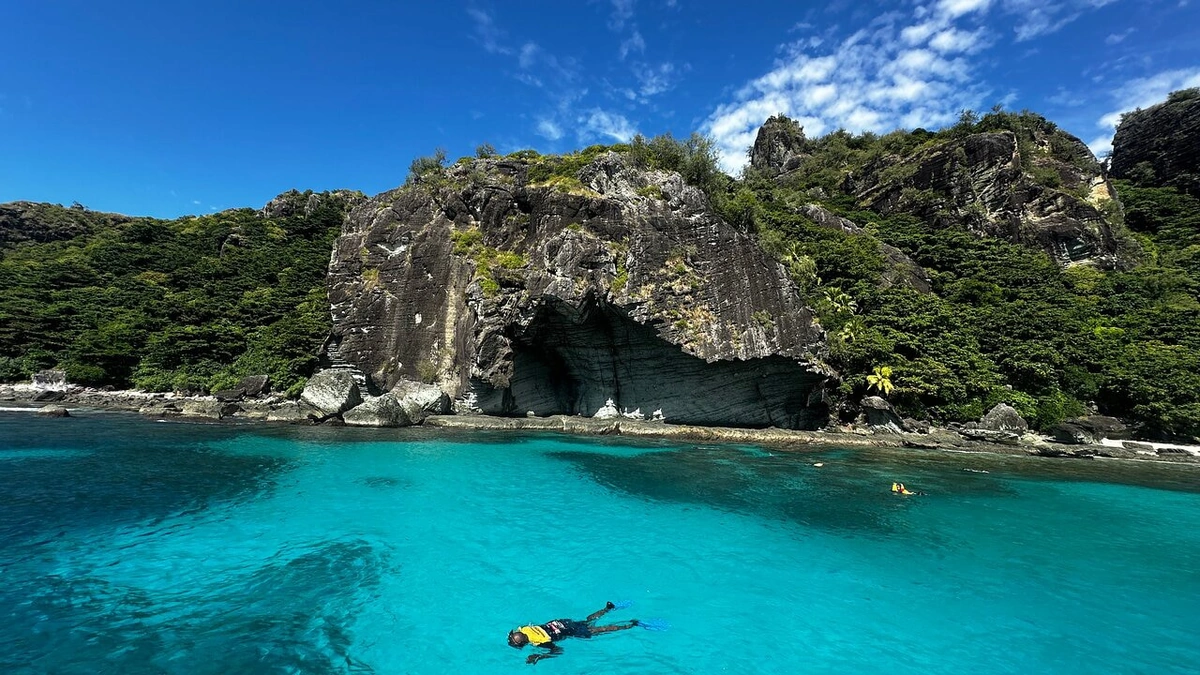
Okay, so how do you take all this context and turn it into a better travel experience? It’s simpler than you think.
- Venture Beyond the Resort: The all-inclusive resorts are comfortable, but they are bubbles. The real Fiji is in the towns like Nadi and Sigatoka. Go to the local markets. Eat at the small curry shacks. Take a local bus. It might feel a little less polished, but it will be infinitely more rewarding.
- Visit a Village (Respectfully): Many villages welcome visitors, but you can’t just wander in. This is where you connect with the heart of what is Fiji known for: its community. It’s customary to buy a gift of yaqona (kava root) to present to the village chief in a ceremony called a sevusevu. Go with a local guide who understands the protocol. It’s a deeply moving experience of being welcomed into someone’s home and life.
- Listen More Than You Talk: Ask your driver about their family. Ask the woman selling handicrafts at the market about her village. Fijians are incredible storytellers. Their warmth and openness are their greatest assets. By listening, you’ll learn more about the Fiji culture than any guidebook could ever teach you.
This is how you transform a simple holiday into a meaningful journey. It’s a bit like trying to understand a complex issue like a high-stakes political meeting ; you have to look beyond the headlines.
Your Burning Questions About Fiji, Answered
Is Fiji safe for tourists, especially for those travelling from India?
Absolutely. Fiji is one of the safest and most welcoming tourist destinations in the world. Standard travel precautions apply, of course, but the famous Fijian hospitality is very real. You’ll feel incredibly welcome.
What’s the best time to visit Fiji?
The dry season, from May to October, is generally considered the best time to visit Fiji . You’ll get plenty of sunshine and less humidity. However, the ‘wet’ season (November to April) can be cheaper and less crowded, with rain usually coming in short, intense bursts.
Do I need a visa to travel to Fiji from India?
Good news! For Indian passport holders, Fiji offers a visa on arrival for tourism purposes for up to 4 months, provided you have a return ticket, accommodation proof, and sufficient funds. Always check the latest regulations on the official Fiji Immigration website before you book.
What currency do they use?
The currency is the Fijian Dollar (FJD). While resorts and larger stores accept credit cards, it’s always a good idea to have some local cash on hand for markets, taxis, and smaller shops.
Is Fiji just for honeymoons and couples?
Not at all! While it’s a world-class honeymoon destination, Fiji is fantastic for families (Fijians adore children), solo travellers seeking adventure (diving, hiking, surfing), and groups of friends. There’s an island and an experience for every type of traveller.
So, yes, go to Fiji for the flawless beaches and the crystalline water. You’ve earned that escape. But while you’re there, look a little deeper. See the resilience behind the smiles, understand the history in the food, and listen to the urgent wisdom in their voices. You’ll bring back more than just a tan; you’ll bring back a piece of the Bula spirit, and that’s a souvenir that will last a lifetime.
